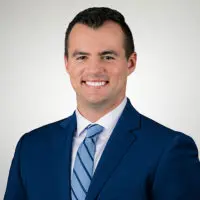SWIPLit
Church Founder’s Works Not “Works for Hire” Even Though Founder Was Employee
By David G. Barker
Keith Rhinehart started the Aquarian Foundation church in 1955, with a mission to study “Modern Spiritualism, Christianity, Eastern and Metaphysical Thought.” Bruce Lowndes joined the church in the 1970s and grew close with Rhinehart, who stayed in Lowndes’s home for a time. While staying with Lowndes, Rhinehart signed a license agreement on June 9, 1985, that allowed Lowndes “unrestricted Permission to use any Materials I have Copyrighted.” The license was prescient and anticipated “a coming World Wide Network yet to be created.” Lowndes started digitizing materials authored by Rhinehart and eventually distributed many materials online.
Lowndes was excommunicated in 1997, which he claims to have learned only after Aquarian sued him for copyright infringement in 2019. By that time, Rhinehart had died (in 1999), and Aquarian had received ownership of Rhinehart’s copyright interests through probate. In 2014, Aquarian discovered Rhinehart’s sermons were appearing online and started sending Lowndes “hundreds” of takedown requests under the Digital Millenium Copyright Act. Not until May 7, 2021, during litigation, did the Aquarian Foundation send Lowndes a notice terminating the license agreement.
When the case reached the Ninth Circuit, the court remarked, “[c]opyright, estate law, and religious writings make for strange bedfellows, but this appeal has them all.” I’ll address here only the work-for-hire aspect of the decision.
The copyright registration certificates themselves were significant at trial, because the district court stated both parties “lacked significant credible testimony of any kind,” and that “answers during direct and cross examination were often incomplete, inconsistent with other testimony or exhibits, or otherwise indicated evasiveness, exaggeration, or dishonesty.” “Virtually all” of the registration certificates listed Rhinehart as the author and included a disclaimer that they were not works for hire. The registration certificates were prima facie evidence that Rhinehart—and not Aquarian—owned the copyrights.
And there was “no credible evidence” at trial that the copyrights were works for hire. In fact, Aquarian’s president submitted a declaration that “[a]ll published and unpublished works were required to be copyrighted in [Rhinehart’s] name . . . so that [he] as the author of the materials could maintain the integrity of the works and make publication decisions.” Based on this statement, the court concluded the copyrights were not works for hire under either the 1909 or 1976 Copyright Act, even though Rhinehart was an employee of the church. “[T]he creation and maintenance of the works was Rhinehart’s purview, and not the church’s domain. Nor did the record reflect any hierarchical or supervisory relationship between Rhinehart and Aquarian.” The court also noted that because the materials “were required to be copyrighted in [Rhinehart’s] name,” there was a “level of control” exceeding the scope of his employment by Aquarian.
In the end, the Ninth Circuit upheld the district court’s decision that Rhinehart’s works were his own and not works for hire, that the license to Lowndes was valid, that Lowndes had not breached the license, and that Aquarian received ownership of the copyrights when Rhinehart died. But the court remanded for a trial on whether any infringement occurred after May 7, 2021, when Aquarian terminated the license agreement.




















